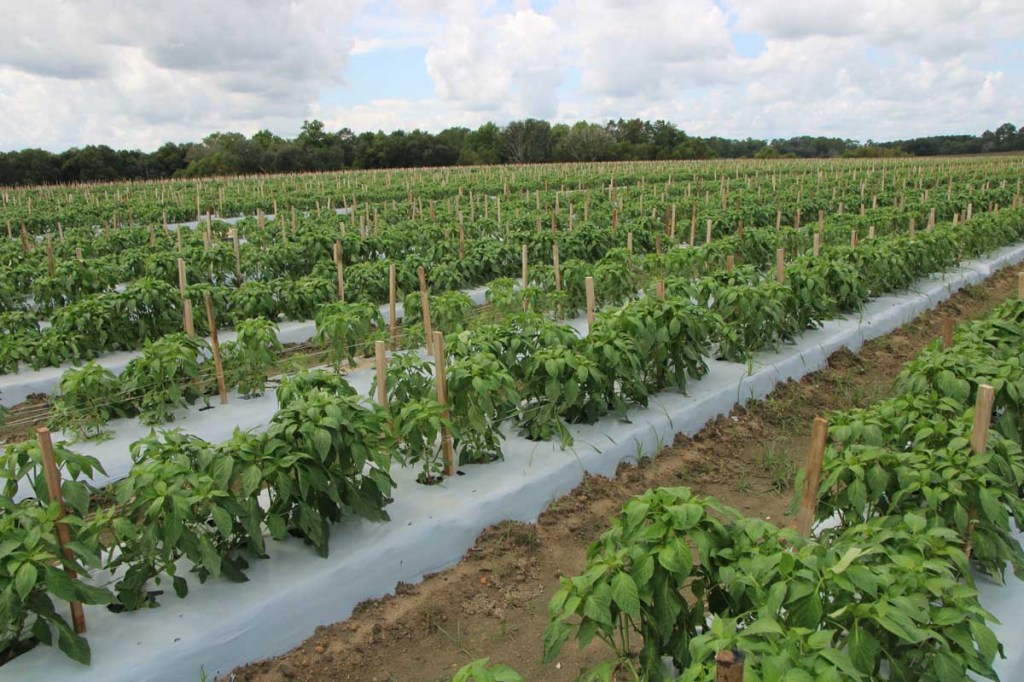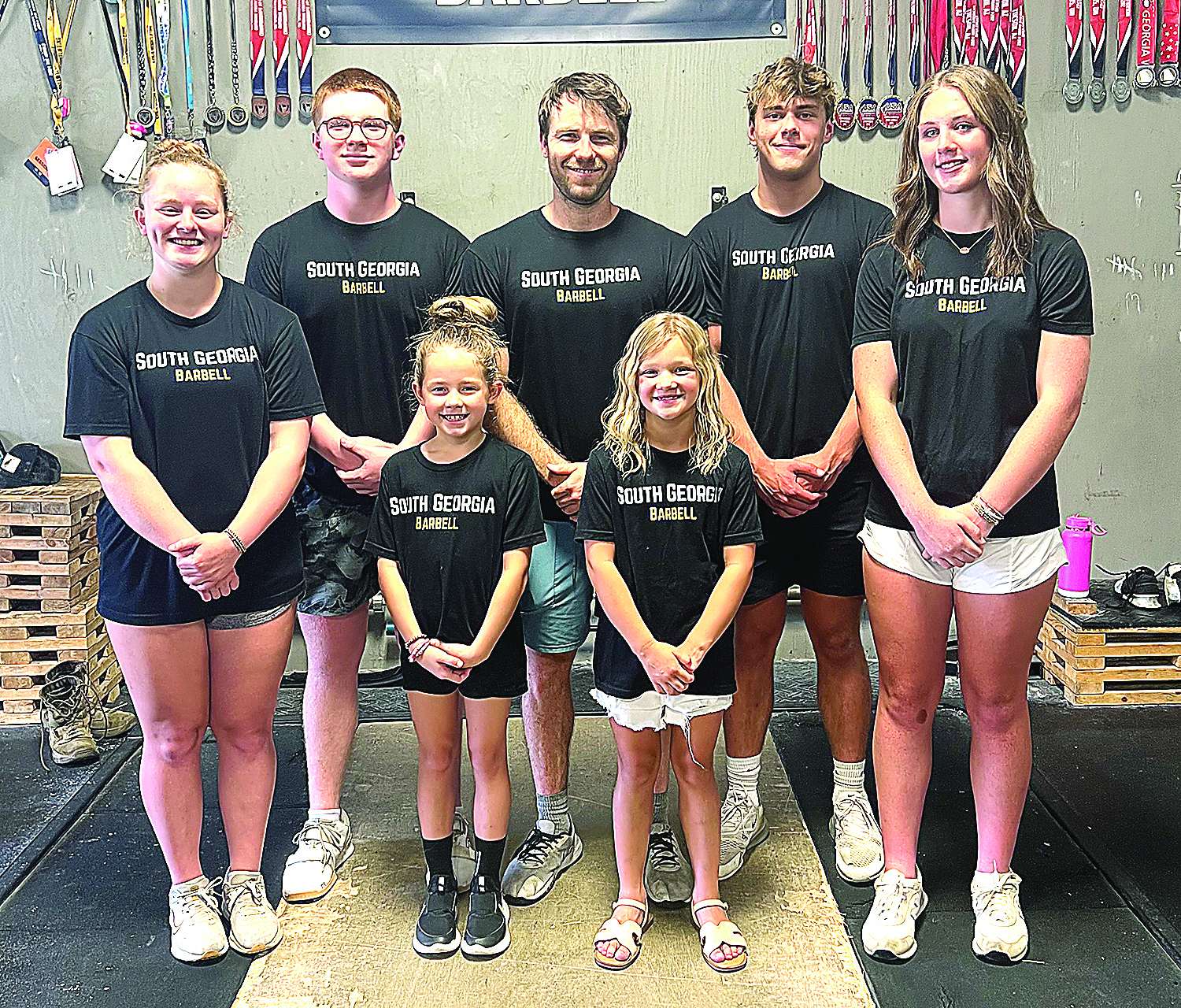Looking Ahead: New approach helps Chill C Farms thwart labor shortages
Published 3:18 pm Friday, May 19, 2023

- Specialty peppers are among the crops grown at Chill C Farms.
MOULTRIE — A southern Georgia grower has found a novel way to help solve his labor headaches.
Chill C Farms, a Moultrie, Georgia, grower and shipper of bell peppers, squash, cucumbers, cabbage, eggplant and hot peppers, recruits area high school students involved in FFA and ag programs. Chill C finds students willing to work during summers, on Fridays and weekends and when classes aren’t in session.
“It’s more about having people who want to come to the farm and work,” said Sam Watson, managing partner. “We get them early, helping them through high school and when they go to college.”
Watson points to the healthcare industry, which recruits workers early to fill nursing and other positions.
“You have to get kids in the pipeline and get them interested in farming, as many may not grow up on farms,” Watson said.
Chill C Farms uses precision agriculture to more efficiently apply water and sprays. Labor and affordability hamper Watson’s using more. The workforce to run the machinery isn’t always there, Watson said.
To save on labor costs, the farm manages its own H-2A employees, instead of using a labor contractor.
High-tech help
The University of Georgia (UGA) and Georgia Tech are working on technology to aid farmers like Watson.
“There is a lot of new technology in the world today, and if it doesn’t meet our needs, we have got to start working to develop new tools, including robots with artificial intelligence and even virtual reality tools to help growers maximize production with less labor,” Watson said.
As president of the Georgia Fruit & Vegetable Growers Association, Watson wants to work to develop more high-tech tools for the industry. Recently, he had the opportunity to witness some of this technology, including virtual reality instruments to help pick blackberries, apples and peaches.
“We have got to start thinking outside the box if we are going to stay in business,” he said.
Soil health remains vital. Chill C Farms has a land/ crop rotation plan to help with disease and quality issues.
“In our early days, we didn’t break a lot of ground,” Watson said. “Today, however, we try to break it all and move around more. We are seeing benefits in soil health and less problems with soilborne diseases and weeds.”
In 2018, Hurricane Michael severely damaged the watermelon crop, which was already facing difficult times, along with rising box costs. Chill C Farms stopped growing watermelons, as well as a post-Christmas cabbage crop.
“Everything is shutting down,” Watson said. “It will continue to be the case if we can’t figure out how to maximize everything. It comes back to being more efficient.”
Cornering costs
To save costs, Chill C Farms strives for efficiency in farming and packing. The company is replacing older equipment, including trucks and other farm vehicles, to save on fuel, repairs and maintenance.
“In the world of farming and produce today, you must maximize everything and everybody to make things work,” Watson said. “Our margins are so much smaller than they used to be.”
Early this year, Watson was sworn in as a Georgia state senator after serving as a state representative since 2013.
As declining population and reapportionment eliminates rural voices, it’s important ag is represented.
“There are not a lot of people in ag here at the state capitol,” Watson said. “ … As people are getting farther removed from the farm, decisions are being made that impact all of us.
“People a lot of times think we’re in overalls in the back of our trucks selling on the side of the road,” he said. “They don’t realize the money we handle, the people we hire and the infrastructure we have to purchase and maintain.”
Chill C Farms is named for the first letters of the children of founders Watson, Will Grantham and Clay Underwood: Cal, Henry, Isabella, Lily, Lucy, and Cade. In 2007, the three high school friends planted their first crop after learning Southern Valley Fruit & Vegetable in Norman Park, Georgia, where Watson worked, needed yellow crookneck squash.
Grantham and Underwood grew cotton, peanuts and row crops. They had land available and an unused sprayer, while Watson brought produce sales and logistics experience to the venture.
“Some people go fish, some play golf. We decided to plant some squash,” Watson said.
At Southern Valley, which Watson left in 2012, he was import-export manager, heading the company’s Mexican growing operations. Farming on the side helped Watson keep busy during downtime.
For Watson, being a successful grower means always looking ahead.
“A long time ago, we would jokingly say ‘there’s always next year,’” he said. “We don’t say that anymore. Every year we plant a crop, it may be the last one, because it costs so much. We’re touching so much more money than we touched five to 10 years ago. One mistake, one bad crop, one bad market, that’s it.”
Still, Watson enjoys the farming life.
“There’s never a dull moment as there’s always something different. I enjoy planting the seed and growing the crop,” he said. “It takes a special type of person to do what we do. The scary part is there are getting to be so few of us.”





